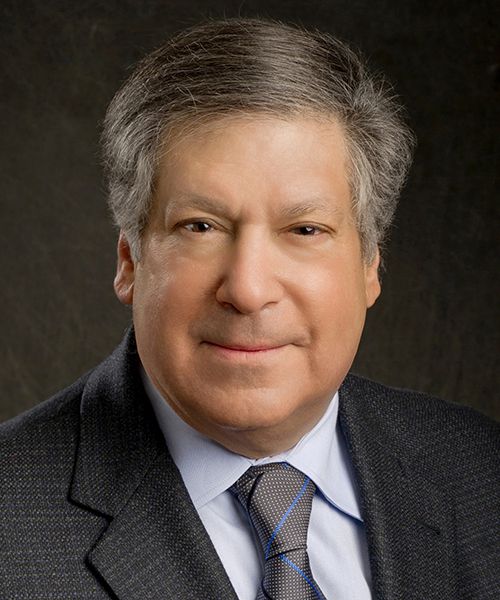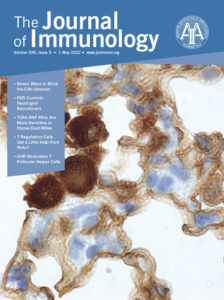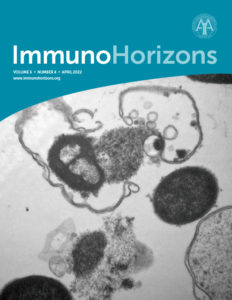Robert D. Schreiber
Washington Univ. Sch. of Med. in St. Louis

Robert D. Schreiber, Ph.D., DFAAI (AAI ’76), is the Andrew M. and Jane M. Bursky Distinguished Professor in the department of Pathology and Immunology, the Interim Head of the Immunobiology Division, a professor of Molecular Microbiology, director of the Andrew M. and Jane M. Bursky Center for Human Immunology and Immunotherapy Programs, and the program co-leader in Tumor Immunology at the Siteman Cancer Center at the Washington University School of Medicine in St. Louis.
Dr. Schreiber’s research focuses on how the immune system responds to cancer. His group has described the concept of—and cytokines, receptors, and signaling pathways involved in—“cancer immunoediting.” This phenomenon occurs in three phases when incomplete tumor clearance by the immune system leads to the outgrowth of tumor cells that more easily evade immunological defenses. The first phase is incomplete immune elimination of the tumor cells. This incomplete elimination leads to a second equilibrium phase, in which the immune system prevents overt outgrowth of tumor cells. The last, or escape phase, occurs when the tumor cells have sufficient modifications to subvert immune recognition. This research has also led to the development of cytokine- or receptor-neutralizing monoclonal antibodies that can target specific immunologic steps in the anti-tumor response. More recently, Schreiber’s laboratory has worked to identify and therapeutically target tumor-specific neoantigens, using immunogenomics to identify neoantigens and develop appropriate vaccines.
Schreiber received his Ph.D. in biochemistry from the University at Buffalo, SUNY, where he completed a short postdoctoral fellowship in the Departments of Medicine and Biochemistry. He then completed a second postdoctoral fellowship in the Department of Molecular Immunology at the Research Institute of Scripps Clinic in La Jolla, California. Schreiber held various positions at Scripps and as a visiting assistant professor at Harvard Medical School before assuming an appointment as a professor at the Washington University School of Medicine in St. Louis in 1985. From 2001–2012, he was also an affiliate of the Ludwig Institute for Cancer Research in New York. He is the co-founder of several companies, including BioNTech Therapeutics, Inc.
Schreiber has received numerous awards, including being named a Distinguished Fellow of AAI and a fellow of the American Association for the Advancement of Science, membership in the American Academy of Arts and Sciences and the National Academy of Sciences, serving on the Biden Cancer Moonshot Blue Ribbon Panel, and sharing the Balzan Prize with James Allison for Immunological Approaches in Cancer Therapy.



